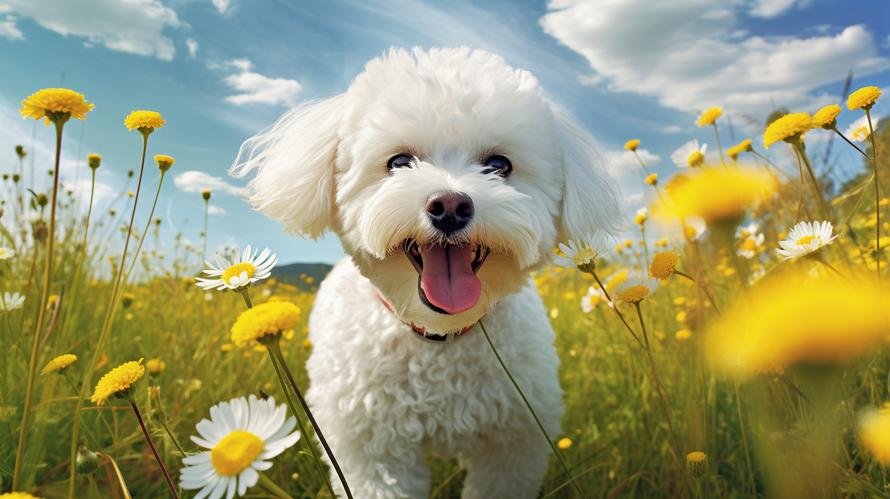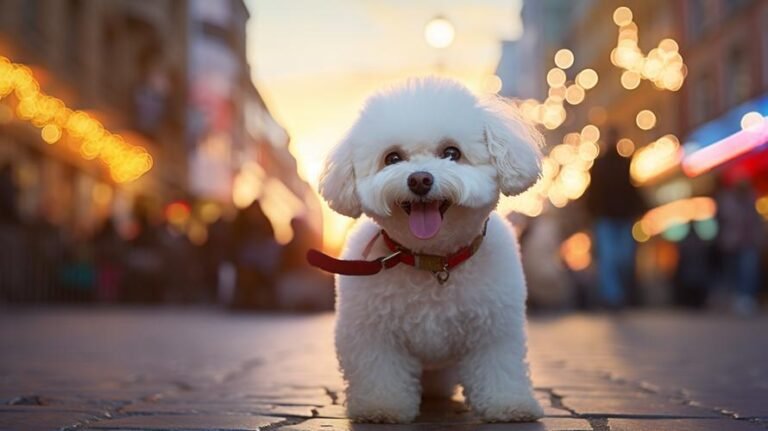Imagine a cutesy, fluffy furball, looking at you with innocent eyes and an adorable wag. That’s a Bichon Frise for you! Often mistaken for a toy poodle, or at times for a cheerful teddy bear, this breed exudes an unmatched charm that we humans simply can’t resist. But have you ever wondered about their temperaments? Like, can these beaming furballs show signs of aggression? After all, every fluffy cloud has a silver lining, doesn’t it?
Let’s delve right into discussing about the possible aggressive tendencies in the Bichon Frise breed.
The first thing to understand is that aggression is rarely innate in any breed. It often stems from experiences and treatment. Interestingly, Bichons are bred for their affable nature. They were specifically chosen to become companion dogs due to their friendly disposition. So, it might come as a surprise that your little puff could ever develop aggressive tendencies!
Typically, Bichons are lively, charismatic dogs. They love to entertain their human families and are excellent with children and other animals. They are regarded as gentle and amiable, merrily wagging their tails and seeking your attention.
However, these sprightly pupsters can sometimes exhibit signs of fear or territorial aggression. Boundary issues, noise sensitivity, and sudden, erratic movements can agitate them. Like other small dogs, they might develop the so-called ‘small dog syndrome’, which is a set of behaviors developed when dogs compensate for their size by displaying dominance. Thus, it could make Bichons act more aggressively than they naturally are.
So how can you curb these aggressive streaks?
Regular socialization right from puppyhood plays a vital role in tempering aggressive tendencies. Exposing them to diverse environments and people can help. Bring them to parks, allow them to interact with other dogs and, introduce them to different noises. This helps them grow accustomed to different situations, reducing their fear and consequent aggression.
Next, stick to positive reinforcement training methods. Since Bichons are people-pleasers, they tend to respond well to praise and rewards. So, instead of punishing them for misbehaviors, reward them for their good actions.
Further, steer clear from harsh treatments. Persistent harsh treatment can trigger aggression in any dog, not just Bichons. Hence, it’s essential to create a loving, nurturing ambiance that fosters their gentle and friendly nature.
As Bichon Frise owners, you might experience some stubborn resistance during training. Patience is key here. Consistent, patient training can mold them into quintessential family pets that Bichons are well-known for.
A strict feeding and exercise regimen also helps in managing their behavior. Proper nutrition and physical activities can reduce canine anxiety and stress, thereby mitigating aggressive traits. A daily walk around the block or a game of fetch might just do the trick.
To rule out health issues that could lead to aggression, regular vet checks are vital. Specific ailments can make your pet uncomfortable, leading to irritability and aggression.
So, coming back to our initial question – “Is Bichon Frise aggressive?” – the answer is, not naturally. They are inherently sociable and affectionate dogs. However, like every other breed, they can show signs of aggression if mistreated, worried, or scared.
With proper training, socialization, and affection, you can easily nurture your Bichon to be loving and amiable. It’s about making them feel safe in your company and stimulating their intelligent minds in positive ways as a shared joy can bring out the best in our furry friends.
Every dog, big or small, deserves respect and love. Understanding their behavior and working on modifying it constructively goes a long way in building a robust human-pet relationship. After all, a well-behaved Bichon is nothing but a cheerful bundle of joy bringing warmth and happiness to your home. So, wear that smile, show some love and let your Bichon revel in its glory of being the delightful, fluffy companion that it is!



